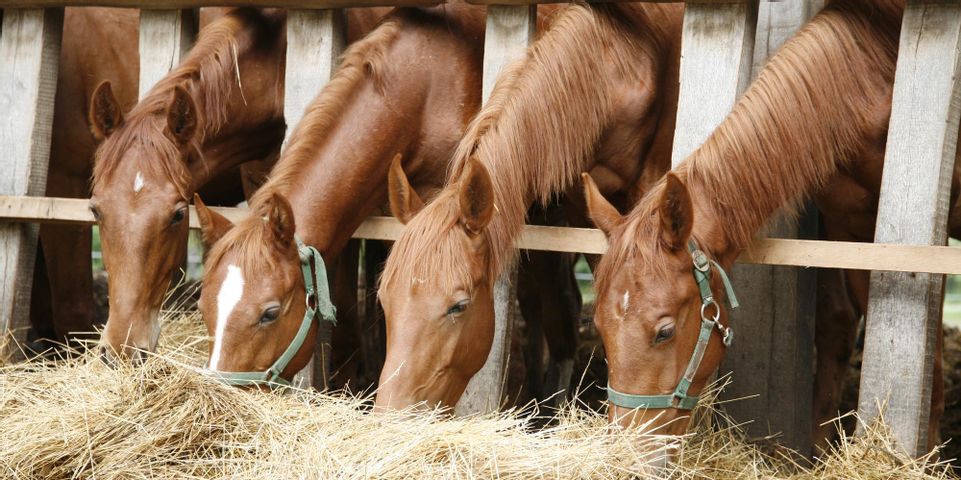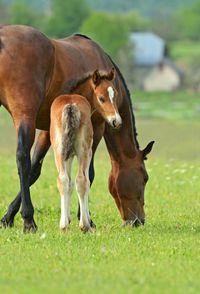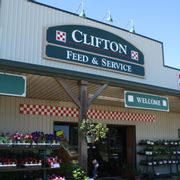4 Tips for Choosing the Best Horse Feed

Your horse’s health depends on the quality of its feed, and choosing the perfect option from your local pet food store can be challenging. There are a few factors to take into consideration when deciding which horse feed is best. Below are several tips to help you make a well-informed decision.
How to Pick the Best Horse Feed
1. Think About Your Horse’s Age
Choose a feed targeted to your horse’s age. Foals need higher levels of nutrients, like copper, proteins, and calcium, than adult horses to promote healthy growth. Adults need mostly roughage like grass hay or alfalfa, but grains should be added if they’re experiencing a deficiency or don’t get enough roughage in their diet.
Geriatric horses should have access to roughage. However, since it can be difficult for them to eat and digest it, they should also have access to a complete feed that offers all of the needed protein, vitamins, and minerals while being easy to digest.
2. Consider Any Special Needs
 If your horse doesn’t have access to roughage, it will need a high-quality complete feed, too. If your vet has noted deficiencies in their diet, there are supplemental feeds that are targeted to help fill the void in their diet.
If your horse doesn’t have access to roughage, it will need a high-quality complete feed, too. If your vet has noted deficiencies in their diet, there are supplemental feeds that are targeted to help fill the void in their diet.
Sick horses, such as those with colic, may need feeds softened with water and designed for easy digestion. After mating in early spring, a pregnant mare will need a concentrate feed to provide higher levels of amino acids, copper, zinc, and manganese to promote mare and foal health, reducing the chance of orthopedic issues in the foal.
3. Take Activity Levels Into Consideration
Horses with different activity levels will also need different feeds. A low-activity horse that spends most of its time pastured or being ridden intermittently for leisure will need a maintenance feed that offers low to mid-range energy.
Horses that perform—such as dressage, jumping, racing, or rodeo horses—require much higher levels of energy, so a horse feed high in electrolytes, fats, and carbohydrates is best for them.
4. Make Sure They Have Enough Roughage
Unless they’re ill or have a specific condition, your horse’s diet should consist mostly of roughage. Horses eat about 2% of their body weight in roughage a day, which equals about 20 pounds.
For the average horse, grass hay that’s leafy, dry, and free of insects and mold is suitable, while alfalfa hay is preferred. You can supplement their roughage with a maintenance feed to ensure they’re getting enough nutrients.
Find the best horse feed for your equine at Clifton Feed & Service Center in Bosque County, TX. This livestock and pet food store offers a broad range of high-quality feeds that are affordable and target varying dietary needs for equines, from pastured horses to performers. Since 1968, they’ve provided solid advice and courteous service, and their pet supplies include grooming and pest prevention products your horse needs. Learn about their pet supplies online, and call (254) 675-3416 to arrange delivery to your farm or ranch today.
About the Business
Have a question? Ask the experts!
Send your question

